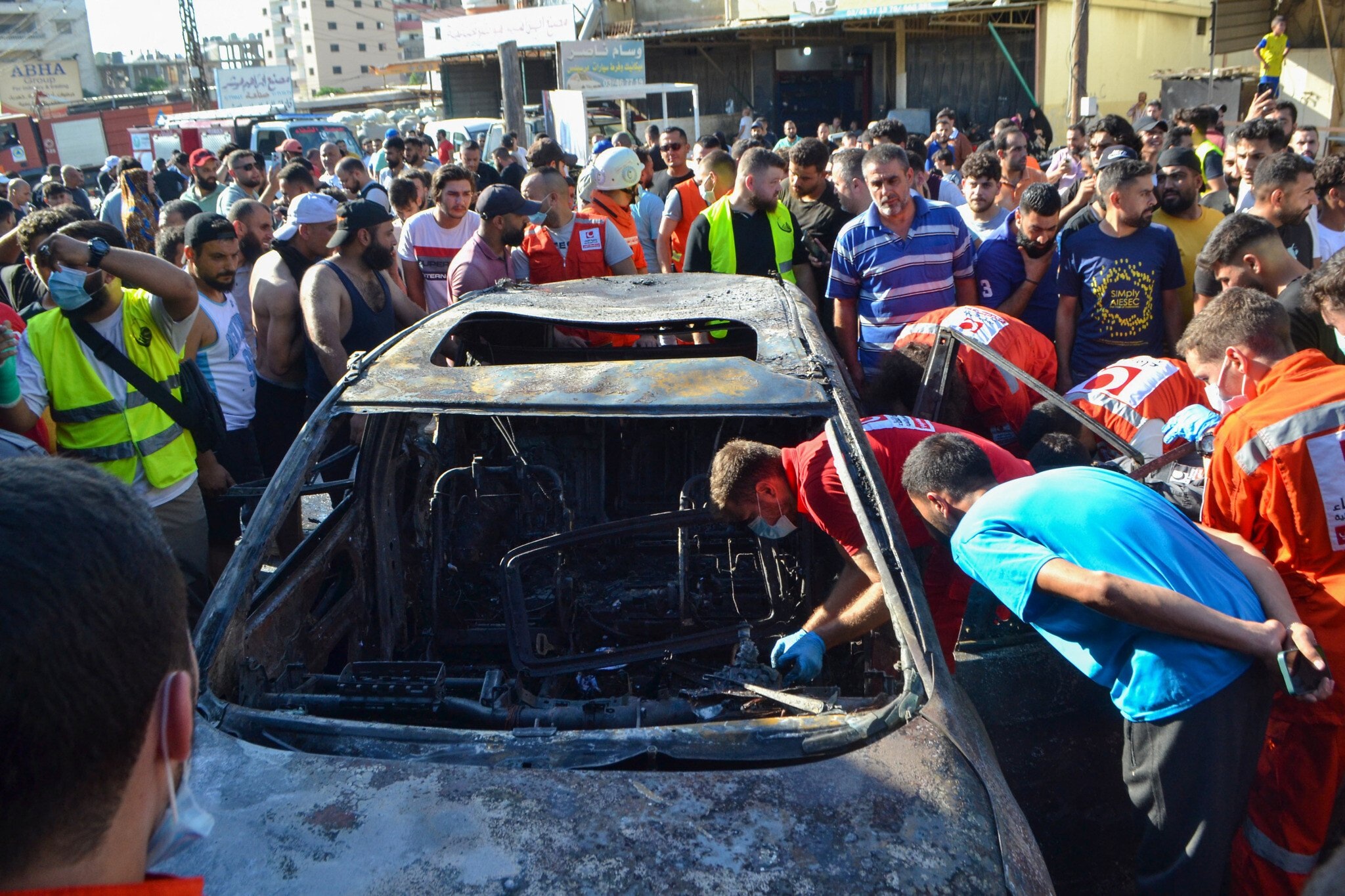An Israeli airstrike in southern Lebanon on Friday killed one person and injured five others, according to the Lebanese Ministry of Health, underscoring ongoing volatility despite a ceasefire agreement between Israel and the Iran-backed militant group Hezbollah.
In an official statement, the ministry reported that an Israeli drone targeted a vehicle near the town of al-Numairiya in the Nabatiyeh district.
The strike reportedly resulted in one fatality and left multiple others wounded. Israeli authorities have yet to comment on the incident.
Though a formal ceasefire has been in place since November 2024, tensions along the Israel-Lebanon border have remained high.
Israel continues to launch precision strikes on Hezbollah operatives and infrastructure, citing persistent violations of the truce by the group.
According to the Israel Defense Forces (IDF), more than 180 Hezbollah members have been killed in Israeli operations since the agreement took effect.
Just a day earlier, the IDF announced it had eliminated Muhammad Jamal Murad, a senior Hezbollah commander responsible for artillery operations in Lebanon’s southern coastal sector.
Murad was reportedly killed in an airstrike in the Mansouri area, located south of the city of Tyre.
Israeli military officials accuse Murad of orchestrating numerous rocket attacks on Israeli territory during last year’s war.
He is also accused of spearheading recent efforts to re-establish Hezbollah’s artillery presence in southern Lebanon.
“Murad’s actions posed a direct threat to Israeli security and represented a clear breach of the understandings reached under the ceasefire agreement,” the IDF said in a statement.
The military also confirmed it had struck a Hezbollah facility in Yohmor, a village in southern Lebanon, late Thursday night.
According to the IDF, the targeted site was a Hezbollah command post operating under the guise of a civilian structure.
The statement criticized Hezbollah for embedding military assets within civilian areas, arguing that such tactics endanger local populations and violate international norms.
“These actions not only contravene the ceasefire terms but also reflect Hezbollah’s ongoing exploitation of civilians to facilitate its military agenda,” the IDF added.
The November ceasefire brought an official end to more than a year of low-intensity conflict between Israel and Hezbollah.
This intensified sharply during a two-month period of open warfare in late 2024.
The hostilities began on October 8, 2023, when Hezbollah launched unprovoked attacks on northern Israel.
The group claimed the assault was a show of solidarity with Hamas, which had initiated a deadly incursion into southern Israel the day before, killing over 1,200 people and taking hundreds of hostages.
Under the ceasefire’s terms, Hezbollah was obligated to withdraw its fighters north of the Litani River and dismantle its military infrastructure in southern Lebanon.
In parallel, Israel agreed to pull back its forces from Lebanese territory but retained the right to conduct operations against perceived security threats.
Since the ceasefire took effect, the Lebanese government has made visible efforts to dismantle Hezbollah’s military presence in the south.
Authorities are believed to have confiscated a significant portion of the group’s weapons caches in the region.
Nonetheless, Israel maintains that Hezbollah continues to operate covertly in violation of the agreement.
On the diplomatic front, Lebanese President Joseph Aoun addressed the broader geopolitical situation during remarks on Friday.
While expressing openness to peaceful coexistence with Israel, Aoun clarified that normalization of diplomatic relations is not on the table at this time.
“Peace, defined as the absence of war, is our priority,” he said.
“However, normalization is not currently part of Lebanon’s foreign policy.”
His comments came amid increasing international attention to Lebanon’s evolving security and political landscape.
Observers note that while Lebanon’s leadership has taken steps to rein in Hezbollah’s power in the south, the group still wields significant influence across the country.
According to them, this complicates both domestic governance and foreign policy initiatives.
As tensions persist, the fragility of the ceasefire remains a focal point of concern for regional and international stakeholders alike.







